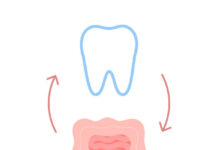Health isn’t merely the absence of disease—it’s a dynamic state of complete physical, mental, and emotional well-being. Yet in today’s fast-paced, digitally connected world, maintaining balance often feels like a luxury rather than a necessity. People chase quick fixes, trending diets, and miracle supplements, forgetting that true health requires harmony between the body, mind, and lifestyle.
Fortunately, the modern view of health is evolving. Individuals are moving beyond surface-level wellness trends toward a deeper, more holistic approach that integrates nutrition, exercise, mental health, and preventive care. Platforms like urbansplatter.uk often highlight how this multidimensional understanding of well-being can transform not only our bodies but also our overall quality of life.
Nutrition: Building Blocks of Health
You are, quite literally, what you eat. Nutrition forms the foundation of every aspect of health—from energy levels and metabolism to immunity and longevity. But healthy eating today goes far beyond counting calories or cutting carbs.
Modern nutrition focuses on quality over quantity. Whole foods—fresh fruits, vegetables, lean proteins, whole grains, and healthy fats—nourish the body with essential vitamins and minerals that support every organ and system. On the other hand, ultra-processed foods, excessive sugar, and trans fats are directly linked to inflammation, heart disease, and cognitive decline.
More people are adopting balanced eating habits like the Mediterranean diet, which emphasizes plant-based foods, olive oil, and fish. Others are exploring mindful eating, where attention is paid to hunger cues, portion sizes, and emotional triggers.
What’s crucial is understanding that no one diet suits everyone. Genetics, activity levels, and personal preferences all play a role. The best nutritional approach is one that is sustainable—something you can maintain for life, not just for a season.
Physical Activity: Movement as Medicine
Exercise is not just about aesthetics—it’s a cornerstone of physical and mental vitality. Regular movement enhances cardiovascular health, strengthens bones and muscles, boosts metabolism, and improves mood through the release of endorphins.
The key is consistency. It’s better to move moderately every day than to overexert occasionally. Health professionals recommend at least 150 minutes of moderate aerobic activity or 75 minutes of vigorous exercise per week, along with muscle-strengthening sessions twice a week.
However, fitness no longer means hours spent at the gym. Activities such as yoga, swimming, cycling, or even brisk walking can deliver tremendous benefits. The growing popularity of at-home workouts, guided meditation, and online fitness programs shows how people are integrating exercise into their daily lives more conveniently than ever before.
Functional fitness—training the body for everyday tasks—is also gaining traction. It focuses on improving mobility, stability, and endurance through practical exercises that enhance real-world performance.
Movement, in any form, is powerful medicine. Whether you’re dancing in the living room, hiking with friends, or practicing tai chi in the park, staying active is one of the simplest and most effective ways to protect your health.
Mental Health: The Foundation of Overall Well-Being
In the past decade, society has made tremendous progress in recognizing the importance of mental health. No longer confined to hushed conversations, it’s now a central part of public health discussions—and for good reason.
Stress, anxiety, and depression are increasingly common in a world where we’re always “on.” Chronic stress triggers hormonal imbalances that affect sleep, digestion, immunity, and even heart health. Managing it isn’t just about coping—it’s about prevention.
Mindfulness practices such as meditation, deep breathing, and journaling can significantly reduce stress levels. Regular physical activity, as mentioned earlier, also plays a crucial role in improving mood and cognitive function.
Social connections are equally vital. Having meaningful relationships, spending time with family, and engaging in community activities provide emotional support and a sense of belonging—key elements of mental wellness.
Quality sleep is another overlooked factor. Adults need between seven and nine hours of sleep nightly for optimal function. Consistent rest strengthens memory, stabilizes emotions, and boosts immunity.
Maintaining mental balance is not about avoiding stress altogether—it’s about building resilience and developing healthy coping mechanisms.
Preventive Health: Acting Before Problems Arise
Preventive care is often described as the future of healthcare. Instead of waiting for illness to strike, people are increasingly embracing strategies that prevent diseases from developing in the first place.
Routine check-ups, vaccinations, and screenings allow early detection of conditions like diabetes, hypertension, or cancer. Lifestyle choices—balanced diet, regular exercise, sufficient sleep, and limited alcohol or tobacco use—act as the first line of defense against chronic diseases.
Equally important is listening to the body. Symptoms such as persistent fatigue, unexplained weight changes, or prolonged pain should never be ignored. Early medical intervention often leads to better outcomes.
Holistic health practices, including yoga, acupuncture, and massage therapy, are also finding a place in preventive care. These methods focus on maintaining balance and harmony within the body, reducing stress, and supporting the immune system naturally.
For individuals interested in evidence-based insights on how lifestyle habits influence long-term health outcomes, there are comprehensive wellness discussions resource that provide practical perspectives grounded in current research.
The Role of Technology in Health
Technology has transformed nearly every aspect of healthcare. From telemedicine consultations to wearable devices that track heart rate and sleep patterns, digital tools are making personal health management more accessible and precise than ever.
Fitness trackers and smartwatches encourage accountability, helping users set and monitor goals. Mobile apps guide users through workouts, track nutrition, and remind them to stay hydrated. Meanwhile, AI-powered diagnostics are improving early detection and treatment precision for various diseases.
However, while technology is an incredible aid, it should never replace human connection or professional care. It’s best used as a companion—a tool that empowers people to take control of their health while staying informed and connected with medical professionals.
Environmental and Lifestyle Influences
Our surroundings have a direct impact on our well-being. Urban noise, pollution, and constant screen exposure can increase stress and fatigue. This is why creating a healthy living environment is just as important as maintaining personal habits.
Simple adjustments can make a world of difference:
- Allowing more natural light into your home.
- Introducing indoor plants for better air quality.
- Limiting screen time, especially before bed.
- Taking short walks outdoors to reconnect with nature.
Lifestyle choices extend beyond diet and exercise—they include how we work, rest, and relate to our environment. Striving for balance across all these elements helps sustain long-term health and vitality.
Building a Sustainable Health Routine
The ultimate goal is not perfection—it’s consistency. Real wellness isn’t about rigid rules but about small, intentional choices repeated daily.
Start with manageable goals: drinking more water, walking after meals, or meditating for five minutes a day. Over time, these habits compound into lasting results. Surround yourself with people who encourage positive behavior and seek professional support when necessary.
Sustainability also means being flexible. Health routines should adapt to life’s changes—age, work, family, and environment. The key is to view health as a journey rather than a destination.
Conclusion
A healthy life is not built overnight—it’s crafted through awareness, discipline, and compassion for oneself. True wellness lies in understanding that physical health, mental clarity, emotional stability, and environmental balance are all interconnected.
By embracing a holistic approach and taking small, consistent steps, you can transform your daily life into one that radiates vitality, peace, and purpose. Health, after all, is the foundation upon which every dream and achievement rests


























